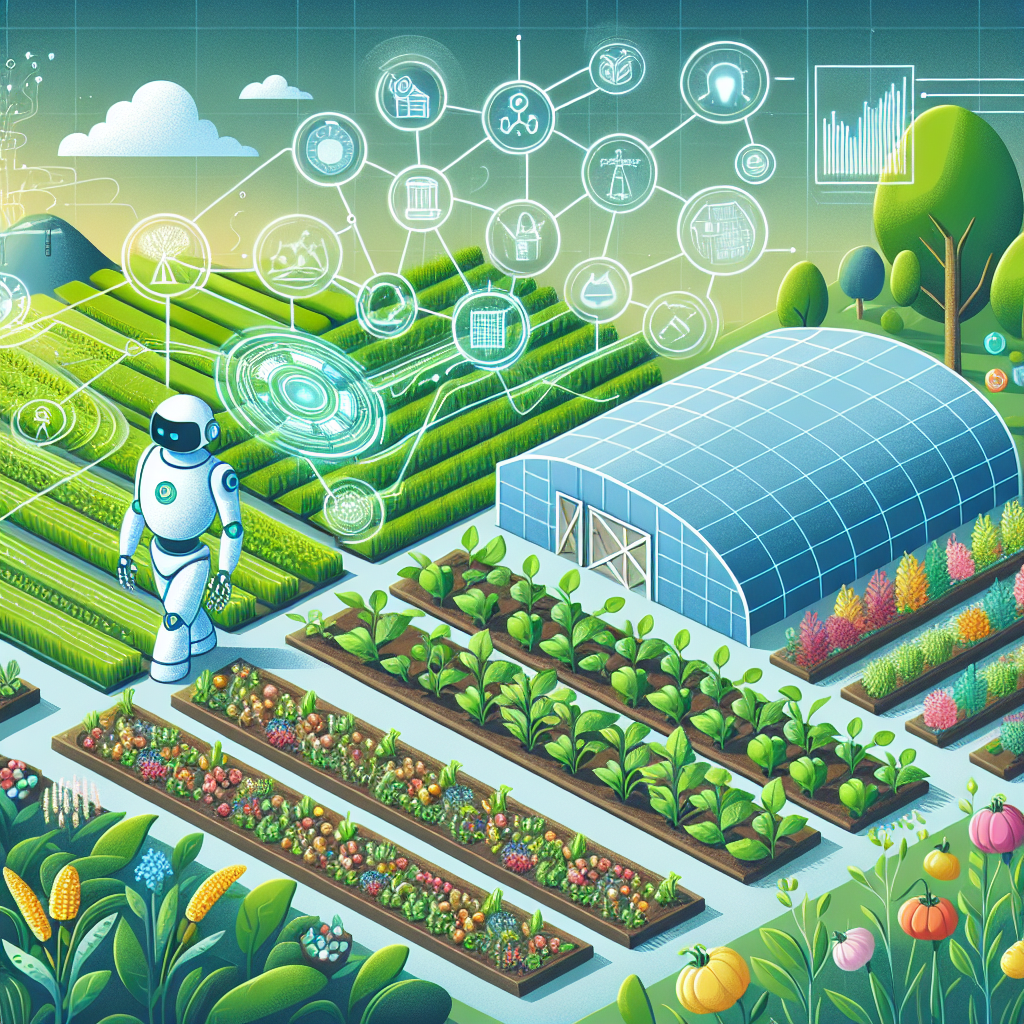As the demand for organic products continues to rise, the need for certification of organic farming practices has become increasingly important. Organic farming certification ensures that farmers are following strict guidelines and regulations to produce food in an environmentally sustainable and socially responsible manner.
Traditionally, organic farming certification has been a time-consuming and labor-intensive process, requiring farmers to keep detailed records of their farming practices and undergo on-site inspections by certifying bodies. However, advancements in artificial intelligence (AI) technology are revolutionizing the certification process, making it more efficient, accurate, and cost-effective.
AI-driven solutions for organic farming certification leverage machine learning algorithms to analyze data collected from sensors, drones, and other IoT devices on the farm. This data can include information on soil health, water usage, crop rotation, pest management, and more. By using AI to analyze this data, farmers can ensure that they are complying with organic farming standards and identify areas for improvement in their practices.
One of the key benefits of AI-driven solutions for organic farming certification is the ability to monitor farming practices in real-time. Instead of relying on periodic inspections, AI technology can continuously track and analyze data to ensure that farmers are following organic guidelines. This not only reduces the burden on farmers to maintain detailed records but also provides certifying bodies with more accurate and up-to-date information on farm practices.
Another advantage of AI-driven solutions for organic farming certification is the ability to detect anomalies or deviations from organic farming standards. Machine learning algorithms can flag any unusual patterns in the data that may indicate non-compliance with organic regulations. This early detection allows farmers to take corrective action before it affects their certification status.
In addition to monitoring and detecting non-compliance, AI-driven solutions can also help farmers optimize their farming practices to improve sustainability and productivity. By analyzing data on soil health, weather patterns, and crop growth, AI technology can provide insights and recommendations for more efficient farming techniques. This can help farmers reduce water usage, minimize pesticide use, and increase crop yields while maintaining organic certification.
Overall, AI-driven solutions for organic farming certification offer a more streamlined and effective approach to ensuring compliance with organic standards. By leveraging the power of machine learning and data analytics, farmers can improve their practices, reduce costs, and enhance their sustainability efforts.
FAQs:
1. How does AI technology benefit organic farmers in the certification process?
AI technology helps organic farmers by monitoring farming practices in real-time, detecting anomalies or deviations from organic standards, and providing insights for optimizing sustainability and productivity.
2. Are AI-driven solutions for organic farming certification cost-effective?
Yes, AI-driven solutions can reduce the time and labor required for organic certification, leading to cost savings for farmers.
3. Can AI technology help farmers improve their sustainability efforts?
Yes, AI technology can analyze data on soil health, water usage, and crop growth to provide recommendations for more sustainable farming practices.
4. How can farmers implement AI-driven solutions for organic farming certification on their farms?
Farmers can integrate sensors, drones, and other IoT devices on their farms to collect data, which can then be analyzed using AI technology to ensure compliance with organic standards.
5. Will AI technology replace traditional organic farming certification processes?
While AI technology can streamline the certification process, traditional on-site inspections and record-keeping may still be required to verify compliance with organic standards.

